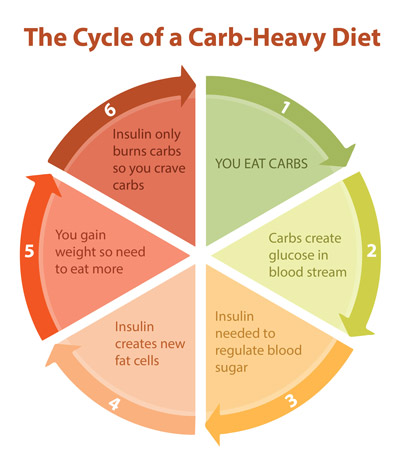All Categories
Featured
Table of Contents
-1
Throughout the Atlantic, nonetheless, I ran into a different nutritional factor of sight. When you look at how they eat, instead than what they eat, there's no paradox at all.

-1
The French often tend to place quality over quantity - optifast. They value the ritual of eating with good friends and liked ones. They bear in mind the food they consume and don't treat or consume on the run. We North Americans, on the other hand, are made use of to huge portions and watch the act of consuming as something to be performed as successfully as feasible, whether at our desks, on the metro or before the television.
-1"I always eat with satisfaction and no guilt," he described. "If I exaggerate it, I'll cut back for a day or twobut I eat what I would typically eat.
Weight Loss Support ([:uarea])
-1As we sat down and ate together, Ppin had tiny portions of every little thing however refrained from secs. If he had a piece of Comt cheese, it was a nibble. "If you eat slower and consume better, making the effort to taste what you place in your mouth, you eat less and enjoy it extra.
-1"I'll never forget the very first time my mommy, who enjoyed roast beef, came over to see. Delicious food in small quantities is what Ppin is persuaded helps with weight control and general health.
Lap Band – [:suburb]
![Weight Loss Programs – [:uarea]](https://img.evbuc.com/https%3A%2F%2Fcdn.evbuc.com%2Fimages%2F768408709%2F2153253467283%2F1%2Foriginal.20240515-144154?w=600&auto=format%2Ccompress&q=75&sharp=10&rect=0%2C13%2C508%2C254&s=4a332914998a5c776b4acddb83ff9ced)
-1
Every one of these "typical suspects" can lead to more weight gain than their calorie web content alone recommends. Super-refined carbs, for instance, cause blood sugar level degrees to spike, setting off a surge in insulin that leads to more calories being kept away in fat cells. They are digested so fast that we swiftly come to be starving once more and end up consuming greater than we need.
-1When I had just about concluded that a lot of weight-loss strategies were futileat the very least for meI discovered that somehow thousands of Americans have actually been successful., whose 12,000-plus enrollees have lost a minimum of 30 extra pounds and maintained the weight off for a standard of six years.
-1Some ate low-fat, some ate low-carb and some consumed usually. Fifty percent got involved in organized weight-loss programs, fifty percent did it on their own.
Weight Loss Doctor – [:uarea] [:postcode]
-1I call it the Frank Sinatra Diet: They did it their means. That made good sense to me. I determined to check out the means I have actually constantly consumed and tweak that or, if requirement be, hack away at it. That suggested eliminating or drastically decreasing the "normal suspects" in my diet.
-1I have whatever the opposite of a pleasant tooth is, so sugar wasn't my problem. On the various other hand, I had lots of weak points that were keeping me plump.
-1For comparable factors, pasta became a rare treat, as opposed to a weeknight standby. Beans, I found, filled up the pasta void, and likewise made satisfying replacements (with fewer calories) in meals that would have when consisted of a slab of meat. I stop alcohol entirely because it was simpler for me to abstain than to very carefully monitor what I consumed alcohol.
Bariatrics – [:suburb]
-1No person would certainly call me graceful. I'm still quite a job in development, but as studies of members of the Weight Control Computer registry program, maintaining the extra pounds off comes to be even more simple and easy gradually as the behaviors needed to maintain your weight become automatic. That strikes me as being virtually the reverse of needing determination.
-1population over the past 20 years. Instead, the behavioral and ecological variables that conspire to cause people to take part in too little exercise and consume excessive about their energy expenditure should take the majority of the blame. It is these aspects that are the target of weight-management strategies.
-1In the past, behavioral methods were applied as stand-alone therapies to just customize consuming practices and lower calorie intake. More just recently, these therapies have actually been utilized in mix with low-calorie diet regimens, medical nourishment treatment, nutrition education and learning, exercise programs, surveillance, medicinal agents, and social assistance to advertise weight loss, and as a component of maintenance programs.
Lap Band

-1
People are asked to maintain a day-to-day food diary in which they tape what and how much they have eaten, when and where the food was taken in, and the context in which the food was eaten (e.g., what else they were doing at the time, what they were feeling, and that else was there).
-1Self-monitoring of food intake is usually connected with a fairly immediate decrease in food consumption and consequent weight-loss (Blundell, 2000; Goris et al., 2000). This reduction in food intake is thought to arise from enhanced understanding of food consumption and/or worry regarding what the dietitian or nourishment specialist will certainly consider the patient's consuming actions.
-1The same may be real of exercise surveillance, although little research study has been carried out in this area. Self-monitoring additionally offers a method for therapists and people to assess which strategies are functioning and how changes in consuming habits or activity are adding to weight-loss (weight loss groups). Recent work has suggested that normal self-monitoring of body weight is a beneficial complement to behavior adjustment programs (Jeffery and French, 1999)
-1In their analysis of data from the National Weight Control Registry, Klem and colleagues (1997) found that weight management accomplished through exercise, reasonable weight loss, reduced fat intake, and specific behavior modifications can be kept for extended periods of time. Nonetheless, this population was self-selected so it does not represent the experience of the typical person in a noncombatant population.
Latest Posts
Supportive Group Classes Near Me – Perth 6055 WA
Dependable Wellness Programs
Client-Focused Exercise Routines ([:area])